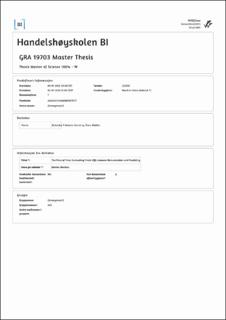| dc.description.abstract | The sudden shift to remote work may have psychological implications on employees' work engagement and well-being. Many organizations are uncertain of whether to keep traditional offices, transitioning to remote work, or adopting flexible work arrangements, which may have implications for their recruitment strategy. The aim of this study is to examine the motivations of job seekers and their valuation of the factors flexibility and pay. This study examines the trade-offs individuals make between remuneration and flexibility when choosing a job. To answer this research question, a vignette experiment was designed with four conditions. Low and high pay
as well as low and high flexibility. The level of pay was manipulated to be 50 000 NOK based on an estimate of the cost of having an office for an organization. The experiment showed that pay did not have a significant effect on job pursuit intentions,
while flexibility was found to increase job pursuit intentions. Path analysis showed that flexibility indirectly influences job pursuit intentions through reduced work-life problems, but not through perceived organizational support. Overall, the findings suggest that flexibility plays a more significant role in determining job pursuit intentions, compared to pay. This study contributes to the existing literature by shedding light on the complex decision-making processes individuals engage in when evaluating job opportunities. By considering the interplay between remuneration and flexibility, organizations can develop strategies that enhance employee satisfaction, engagement, and overall well-being. Future research could explore these trade-offs in different industries and demographic groups, further enriching our understanding of the factors influencing job seekers' decision-making processes | en_US |
